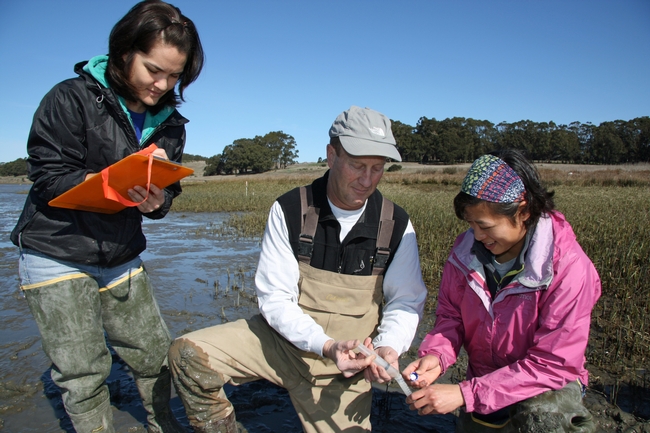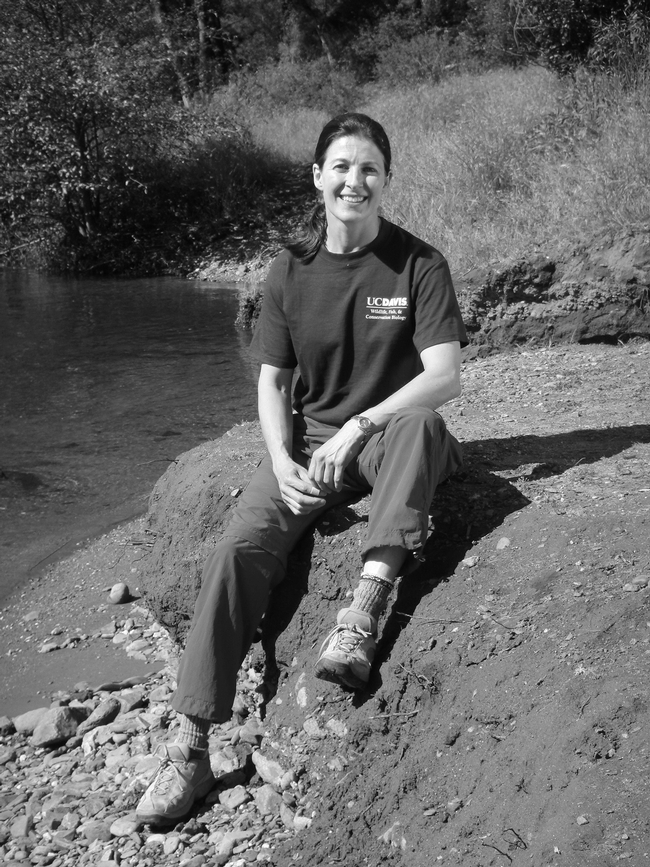Posts Tagged: Delta smelt
UC Davis scientists to discuss aquatic invasive species and research on endangered fish
A pair of leading UC Davis experts will provide a rare glimpse into efforts to protect California biodiversity at a public lecture May 10, 4–6 p.m., in the UC Davis Conference Center.
Their work is featured in the current issue of “CA&ES Outlook,” the magazine of the UC Davis College of Agricultural and Environmental Sciences. The magazine also examines the work of other UC Davis scientists and students working to conserve biodiversity in California.
The event concludes with a reception and an opportunity to visit with Thompson, Grosholz, CA&ES dean Neal Van Alfen, and other participants. The cost is $15 per person. To register, go to https://registration.ucdavis.edu.
For additional information about this event, please contact Carrie Cloud at (530) 204-7500 or crcloud@ucdavis.edu.
San Francisco paper reports on *water war*
A perspective piece in the Sunday San Francisco Chronicle wrapped up decades of California water wrangling and pondered a possible end to the state's "water war."
The article centered on the Sacramento-San Joaquin River Delta, which 150 years ago was a marshy estuary with a constant ebb and flow of saltwater from the San Francisco Bay and fresh water from rivers draining the mountains, said the article, written by freelancer Matt Jenkins.
Today, the article said, after 150 years of "spirited remodeling," the area has been transformed into a tangle of waterways with farms and towns on levee-protected islands. Fresh water from the delta is channeled to agricultural fields for irrigation and to urban water users.
Last fall, the Legislature proclaimed two "coequal goals" for the delta: providing a more reliable water supply for the state and protecting, restoring and enhancing the delta ecosystem.
"We've got to get this right," Assemblyman Jared Huffman, D-San Rafael was quoted in the story. "We're not going to have too many more chances to save the estuary."

The fate of delta smelt is one issue in California's water wars.
Farm economy not as bad as reported
California Sen. Dianne Feinstein fanned a controversy earlier this month when she said she would propose legislation urging the U.S. Fish and Wildlife Service to raise the valley's water deliveries. Her idea was hailed by West Side growers and farmworkers - who say they are suffering economically because of short water supplies - and criticized by environmentalists and many of her fellow democrats - who believe the water is needed to protect delta smelt and salmon.
Yesterday, the Los Angeles Times bolstered the environmentalists' position with an article that said agriculture's reported economic difficulties have been exaggerated.
Times reporter Bettina Boxall wrote that crop and labor statistics for 2009 contradict the image of a withering farm economy teetering on the edge of collapse.
"People make a lot of claims, but the data you see is showing growth. We're just not seeing the job loss," the story quoted Paul Wessen, an economist with the California Employment Development Department.
Boxall also spoke to UC Davis agricultural economist Richard Howitt, who in early 2009 predicted that water cutbacks could cost the valley 80,000 jobs and up to $2.2 billion in revenue. He later revised those numbers to 21,100 farm-related jobs and $703 million in agricultural revenue.
Howitt said farm advocates keep repeating the higher estimates and blame most of the delivery cuts on environmental protections, when they can be more accurately explained by the drought.
Furthermore, the projected economic losses, Howitt said, are "not big" compared to the state's $36 billion farm economy
"But the story is not the aggregate. It's the concentration," Howitt was quoted.
Howitt's report on water supply and demand is available on the UC Agricultural Issues Center Web site.

Delta farmland.


